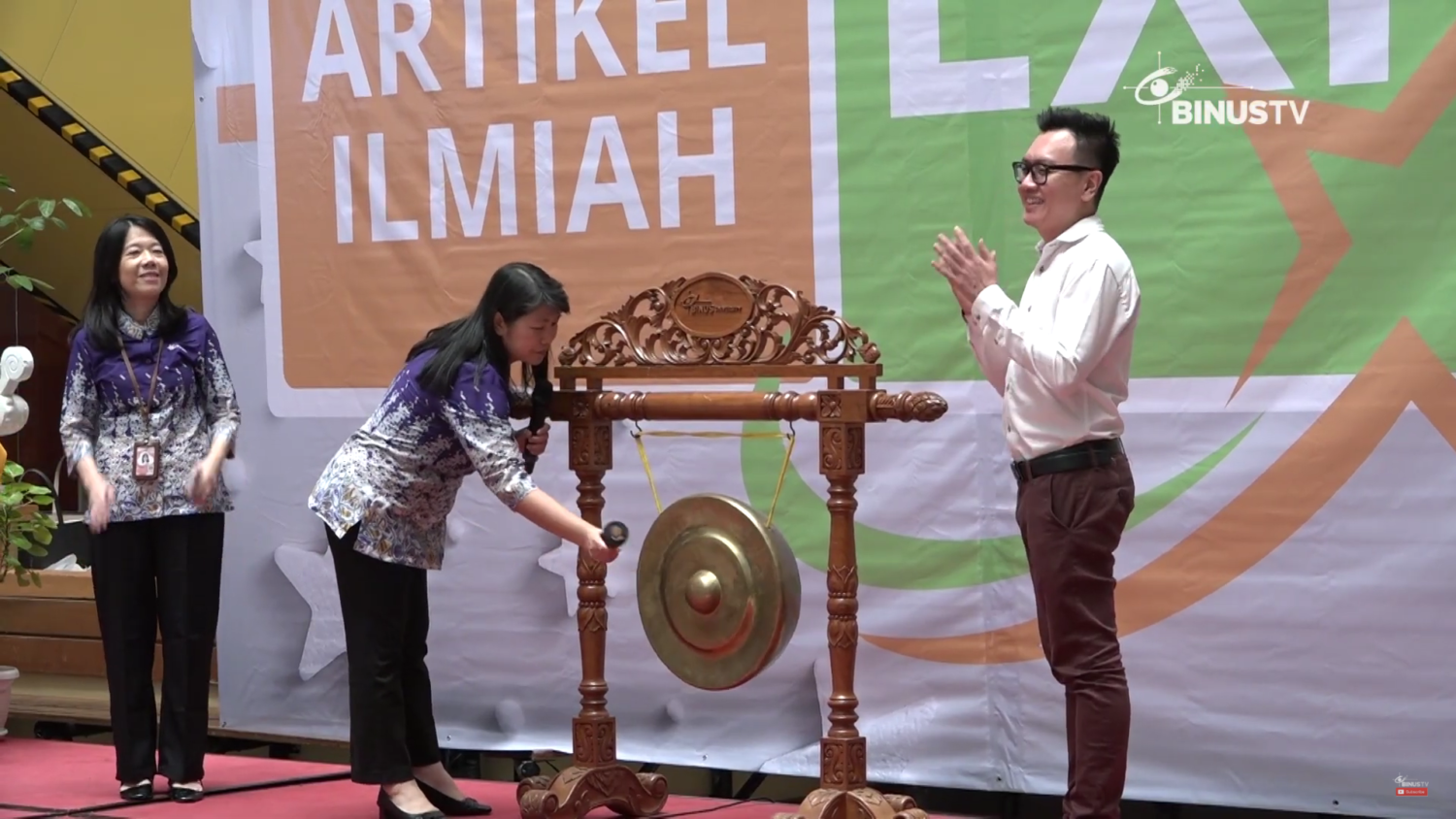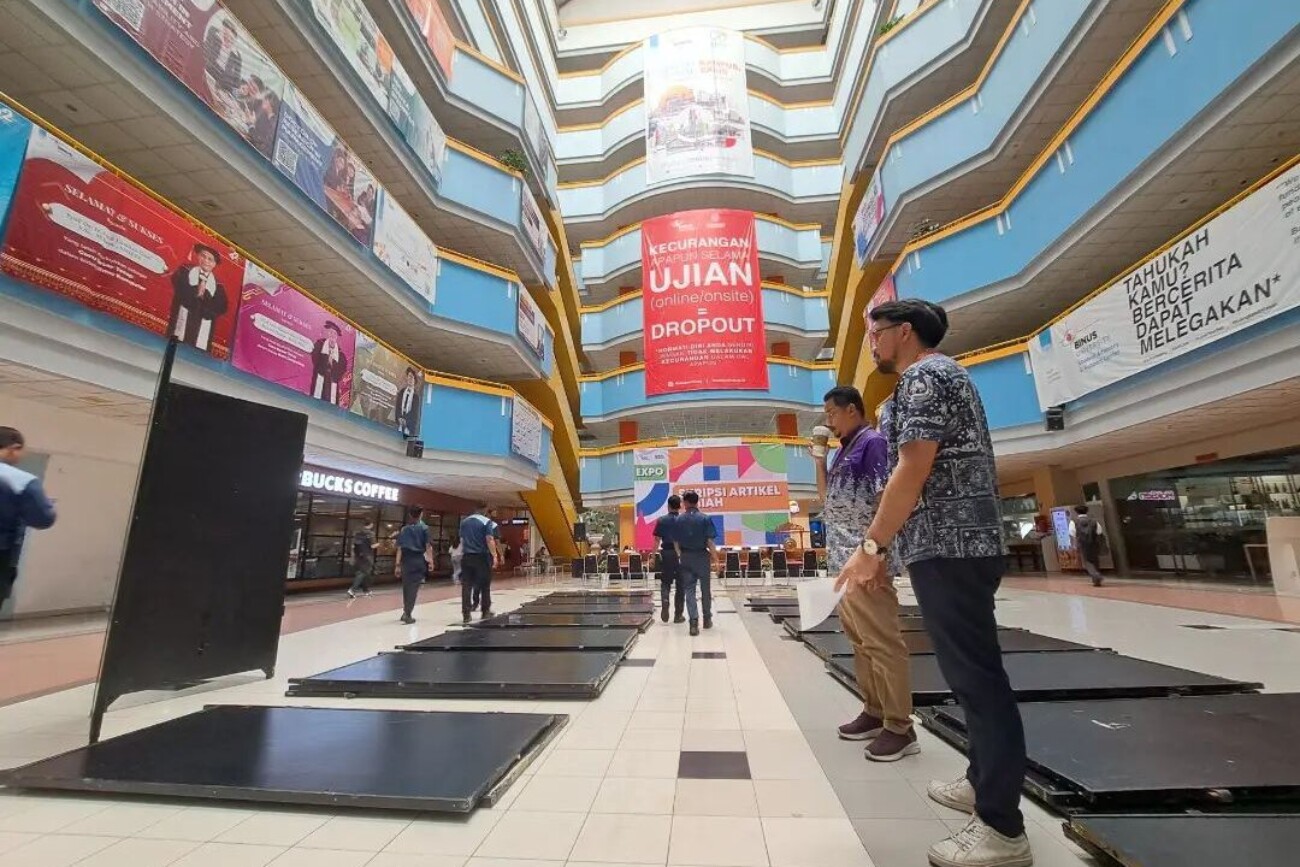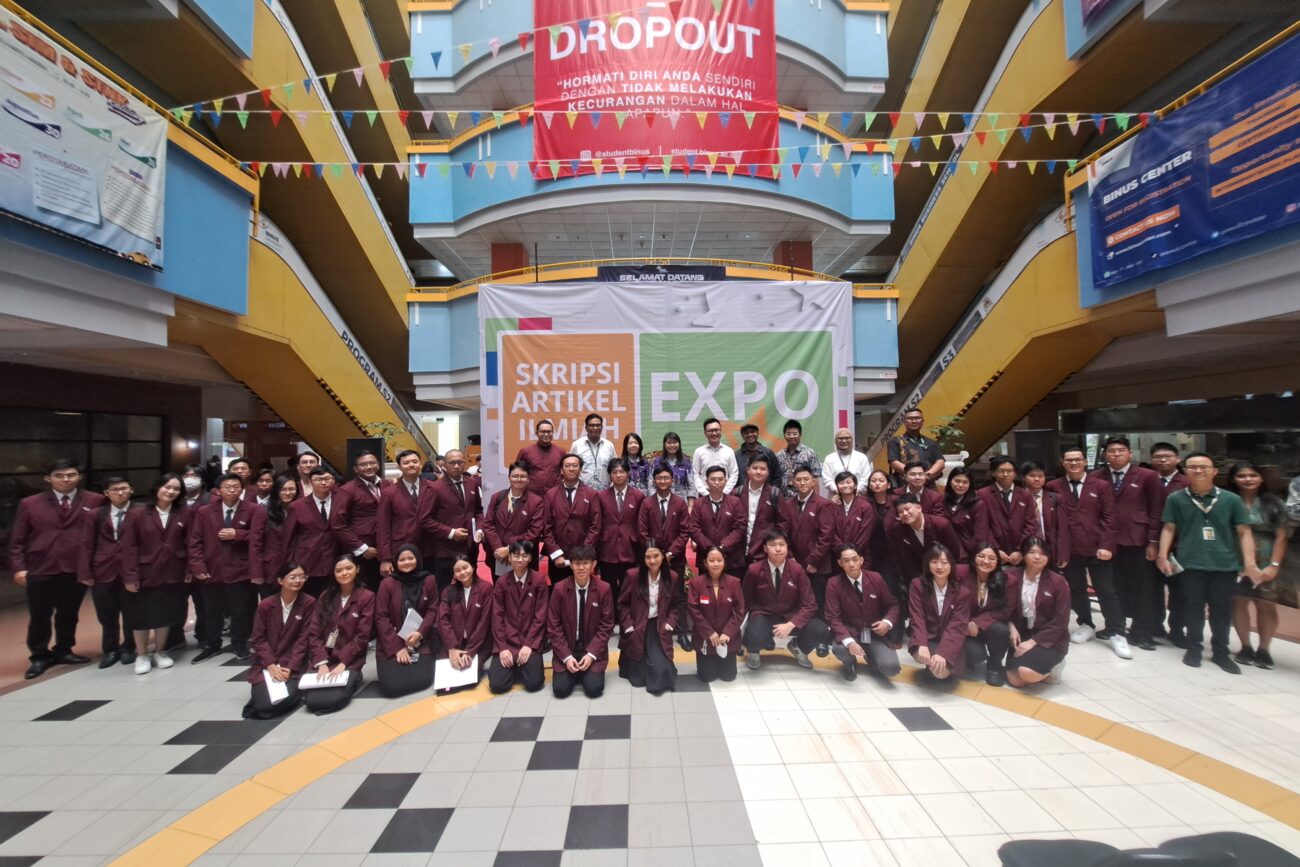PROJECT OVERVIEW
The “Skripsi Artikel Ilmiah” (Scientific Article Thesis Track) initiative represents a bold and innovative step in transforming BINUS University’s undergraduate thesis framework, aligning it with global academic and professional standards. Spearheaded by the Vice Rector for Research and Technology Transfer (RTT) and the Senior Manager of Research Office, the initiative was officially launched in 2020, marking the beginning of a new era in thesis conceptualization and execution. Along with the launch, comprehensive guidance was introduced, accompanied by a university-wide socialization campaign to ensure alignment and awareness across all departments.
This novel approach replaces the traditional thesis model, which required lengthy reports and formal defenses, with a streamlined scheme focused on producing scientific articles. Students are tasked with crafting articles that are either accepted or published in reputable conferences or journals, significantly enhancing the quality and relevance of their academic work. The initiative eliminates the need for a formal thesis defense, replacing it with an engaging and interactive poster expo, designed to foster discussions, feedback, and real-world presentation skills.
Goals of the Initiative
- Equip students with the ability to apply and compare their knowledge and skills gained during their studies with the latest advancements in science and field phenomena.
- Foster students’ ability to analyze the implications of developing or implementing science and technology while adhering to humanities values, scientific ethics, and best practices, producing solutions, ideas, designs, or critiques.
- Enable students to present their scientific findings in the form of published articles, either in indexed international journals or conferences, such as Scopus.
Benefits for Students
- Enhance students’ academic and professional profiles, providing solid evidence of their expertise for further studies or job applications (academic portfolios).
- Offer students hands-on experience in writing articles that can be published in international journals or conferences indexed by Scopus.
- Build their academic reputation as co-authors alongside their supervisors, gaining recognition in the academic and professional communities.
Through this initiative, BINUS University reaffirms its commitment to empowering students with relevant, globally competitive academic experiences. The Scientific Article Thesis Track scheme not only enhances students’ scientific contributions but also ensures they graduate with skills and achievements that set them apart in their future endeavors.
The initiative was covered by national media, and can be accessed through these link:
- https://www.beritasatu.com/network/cilacapinfo/244657/kolaborasi-mahasiswa-dan-dosen-dalam-riset-dan-inovasi-untuk-menjawab-tantangan-global
- https://www.deliknews.com/2024/08/02/kolaborasi-mahasiswa-dan-dosen-dalam-riset-dan-inovasi-untuk-menjawab-tantangan-global/
- https://sumateranews.co.id/kolaborasi-mahasiswa-dan-dosen-dalam-riset-dan-inovasi-untuk-menjawab-tantangan-global/
- https://www.pikiran-rakyat.com/pendidikan/pr-018397270/binus-university-gelar-expo-skripsi-artikel-ilmiah-dorong-minat-penelitian-mahasiswa?page=all

Briefing from Supervisor

DIscussion between Supervisors

Expo Layout

Commitee

Expo Participants

Expo Article Defence
MY ROLES
The success of the “Skripsi Artikel Ilmiah” initiative required close collaboration between departments and meticulous planning to overcome logistical and procedural challenges. My role in this transformative project was both strategic and operational, encompassing several key contributions:
Conceptualizing the Thesis Scheme and Procedure
I was deeply involved in shaping the thesis scheme, ensuring it was practical, aligned with academic standards, and catered to the diverse needs of BINUS University students.
Developing Comprehensive Guidance
As part of the initial launch in 2020, I contributed to creating detailed guidance documents for students and lecturers. These resources served as essential tools to navigate the new thesis process and address any uncertainties.
Facilitating University-Wide Socialization
I played a pivotal role in introducing the new scheme to all departments, organizing socialization sessions to explain its benefits, procedures, and expectations. This early-stage communication was crucial in gaining buy-in from various stakeholders.
Conducting Briefings and Training
I conducted numerous briefings for both students and lecturers, ensuring they were well-prepared to embrace the new format and understand its requirements.
Leading Expo Preparations
I oversaw the planning and execution of the first-ever poster expo, managing all aspects from equipment setup to agenda design. This event, a key feature of the initiative, showcased the students’ research in an interactive and professional manner.
Impact
The Skripsi Artikel Ilmiah initiative has had significant impacts on various aspects of academic and professional development at BINUS University. These include:
1. Enhanced Academic and Professional Profiles for Students
Students graduate with tangible achievements, such as published or accepted scientific articles in reputable journals or conferences, often indexed by Scopus. This not only strengthens their academic portfolios but also provides them with a competitive edge when applying for further studies or entering the job market.
2. Improved Research and Writing Skills
By focusing on producing scientific articles, students gain hands-on experience in academic writing and research dissemination. This prepares them for future academic or professional endeavors, making them more confident and competent contributors to their fields.
3. Increased University Research Output
The initiative contributes to the university’s research reputation by boosting the number of student-authored publications. This enhances BINUS University’s standing in the academic community and its ability to attract partnerships and funding opportunities.
4. Fostering Collaboration Between Students and Supervisors
Students work closely with their supervisors to produce high-quality research articles, fostering a collaborative environment that strengthens mentoring relationships and promotes mutual growth.
5. Greater Alignment with Global Academic Standards
The initiative aligns the thesis process with international academic and professional practices, ensuring that BINUS graduates are well-prepared to contribute to and compete in the global academic and professional landscape.
6. Streamlined and Efficient Thesis Process
The new format reduces the workload and complexity of traditional thesis submissions by eliminating lengthy reports and formal defenses, making the process more accessible and focused while maintaining academic rigor.
7. Interactive and Engaging Presentations
The introduction of the poster expo as a replacement for traditional defenses creates a dynamic platform for students to showcase their research. This fosters meaningful academic discussions and prepares students for real-world presentations.
8. Cultural Shift in Academic Practices
The initiative has encouraged departments to embrace innovation and adapt to more modern, impactful academic practices. This cultural shift enhances the overall quality and relevance of education at BINUS University.
9. Inspiration for Broader Adoption
The success of the initiative has positioned BINUS University as a leader in academic innovation, potentially inspiring similar models in other institutions and contributing to broader educational reforms.
These impacts demonstrate how the Skripsi Artikel Ilmiah initiative has not only modernized the thesis experience but also empowered students and strengthened the university’s role as a forward-thinking academic institution.
Challenges
Despite its potential and the innovative nature of the program, the initiative faced several challenges during its implementation, ranging from logistical hurdles to cultural shifts within the academic community. These challenges required careful planning, consistent communication, and adaptive problem-solving to ensure the initiative’s success and acceptance among all stakeholders involved.
Pandemic-Related Delays
The COVID-19 pandemic, which coincided with the launch of the initiative in 2020, posed significant logistical and operational challenges. The restrictions on in-person gatherings made it impossible to hold the planned on-site poster expos, a key feature of the Skripsi Artikel Ilmiah initiative. This delay threatened to disrupt the timeline and diminish the impact of the program’s interactive elements.
Promoting the New Scheme
Introducing and gaining widespread acceptance for the novel Skripsi Artikel Ilmiah scheme among departments, lecturers, and students was a considerable hurdle. Many were accustomed to the traditional thesis model, and skepticism about the new approach’s feasibility and benefits created resistance to change.
Executing an Unprecedented Expo
The poster expo, a central feature of the new scheme, was a completely new concept for BINUS University. Organizing the first-ever expo presented logistical and strategic challenges, including managing equipment, designing the agenda, and ensuring the event aligned with the initiative’s goals. Coordinating between departments and ensuring the participation of students, lecturers, and evaluators required significant effort.
Solutions
To effectively address these challenges and ensure the success of the Skripsi Artikel Ilmiah initiative, a series of targeted solutions were implemented. Below are the key challenges faced and the corresponding strategies employed to overcome them:
Adapted with online presentations during pandemic
We adapted by introducing interim online presentations as an alternative format. This allowed students to continue showcasing their work while maintaining safety protocols. Once on-site activities were permitted, we resumed the poster expo, ensuring it adhered to health and safety guidelines. This phased approach minimized disruption and maintained the initiative’s momentum during unprecedented times.
Conducted socialization campaigns to build trust
We conducted a university-wide socialization campaign. This involved organizing detailed briefings, interactive Q&A sessions, and creating comprehensive guidance documents to communicate the advantages and expectations of the new scheme clearly. Continuous outreach, transparent communication, and success stories from early adopters helped build trust and enthusiasm among stakeholders over time.




